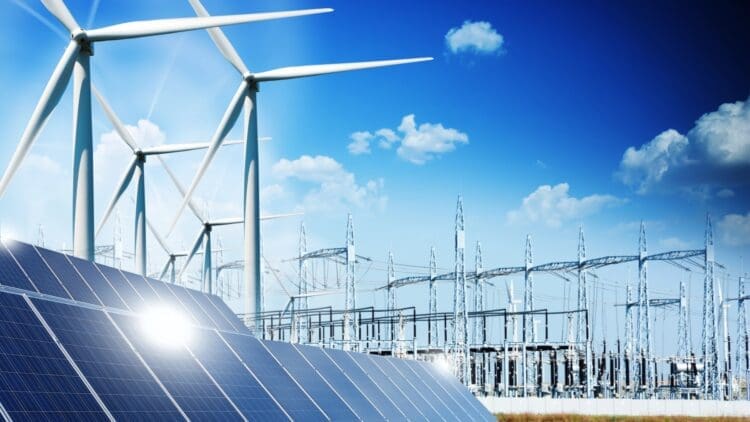The Secretary General of the Arab Energy Organization has affirmed the need for balance in the global energy sector. The world is in a constant state of balancing the need to rely on existing fossil fuel infrastructure that has served the human race so well, with the need to adopt and integrate the renewable energy sector with its vast climate-friendly projects. Decarbonization is important to the world; however, the oil and gas sectors have provided reliable energy as well as employment to millions for generations.
The AEO has called for the integration of traditional and renewable energy sources
At a recent event titled “Empowering the Future: Energy Transition and Economic Diversification in Arab Countries,” the Secretary General of the Arab Energy Organization (AEO), Jamal Al-Loughani, delivered a speech in which he urged the energy sector to integrate traditional and renewable energy generation, emphasizing that it represents the most effective path to meeting the world’s energy needs.
The two-day event was organized by the Arab Planning Institute in cooperation with AEO and the Mohammed Bin Rashid School of Government. It saw some of the energy industry’s biggest stakeholders in attendance, and during his speech, Al-Loughani affirmed the need for balance in the energy sector.
He also underscored the need for Arab nations to transition away from the reliance on fossil fuels as the cornerstone of their markets. Instead, proposing a more balanced narrative where gas and oil’s contributions are limited beyond the current 50% mark.
While he acknowledged the fact that the Arab nations will continue to rely on the oil and gas sectors for employment and industrial investment, he also stressed the fact that, since 2020, Arab investments in renewable energy projects have risen by 35%, representing nearly $18 billion.
The UAE Energy Strategy 2050 represents a new way forward for the nations in the region
The UAE Energy Strategy 2050 calls for significant investments in the renewable energy sector. In fact, the strategy aims to invest between AED150 to and AED200 billion by 2030, which would triple the contribution of renewable energy.
The strategy lays out several key factors that need to be addressed if the nations involved aim to decarbonize and integrate the renewable energy sector efficiently. Among those key factors are:
- Reducing emissions from the water and energy sectors to achieve net zero by 2050.
- eliminating clean coal from the energy mix
- increasing energy consumption efficiency by 42 to 45% compared to 2019
- creating 50,000 new green jobs by 2030
The strategy being championed by the UAE calls for increasing the installed clean energy capacity from 14.2 GW to nearly 19.8 GW by 2030. In a similar move to what the Arab nations are proposing, the EU has approved the sale of a massive coal mine in Germany as part of its divestment plan for the region.
If the world is to achieve the lofty decarbonization goals we have set for ourselves, more needs to be done to develop a more cohesive balance between the need to rely on fossil fuels and the need to develop more efficient renewable energy production methods.
The world should heed the words of the Arab nations calling for balance in the energy sector
The speech by the General Secretary and the UAE’s documented plan for the energy sector should serve as a prime example of how the world needs to come together to find and propose innovative solutions to the energy crisis that is unfolding. If we continue to rely on conventional fossil fuels, as so many nations have, we will surely see more disastrous climate change unfolding. If we abandon the oil and gas sector, millions of people would lose their income, and the global economy would most likely crash. Either way, balance is required.





